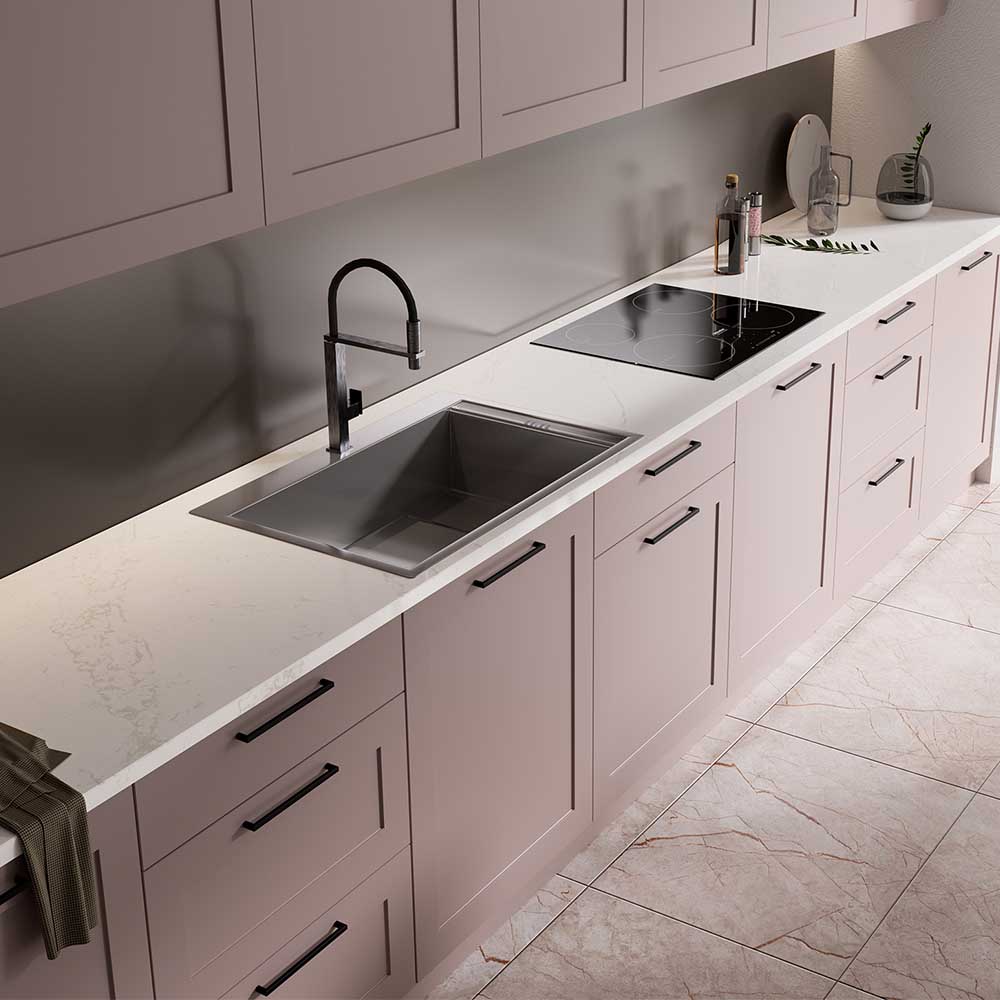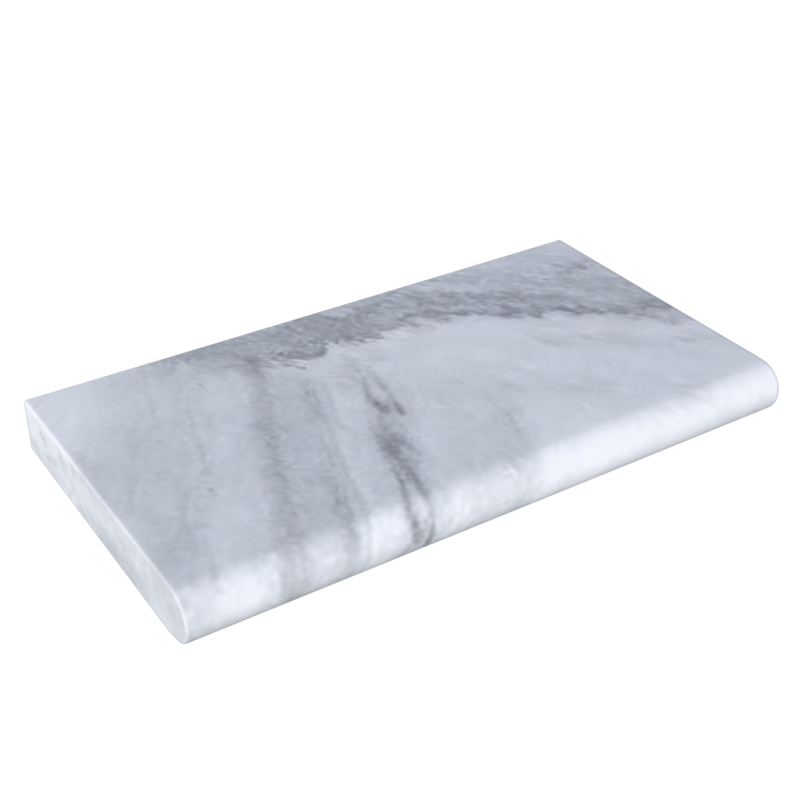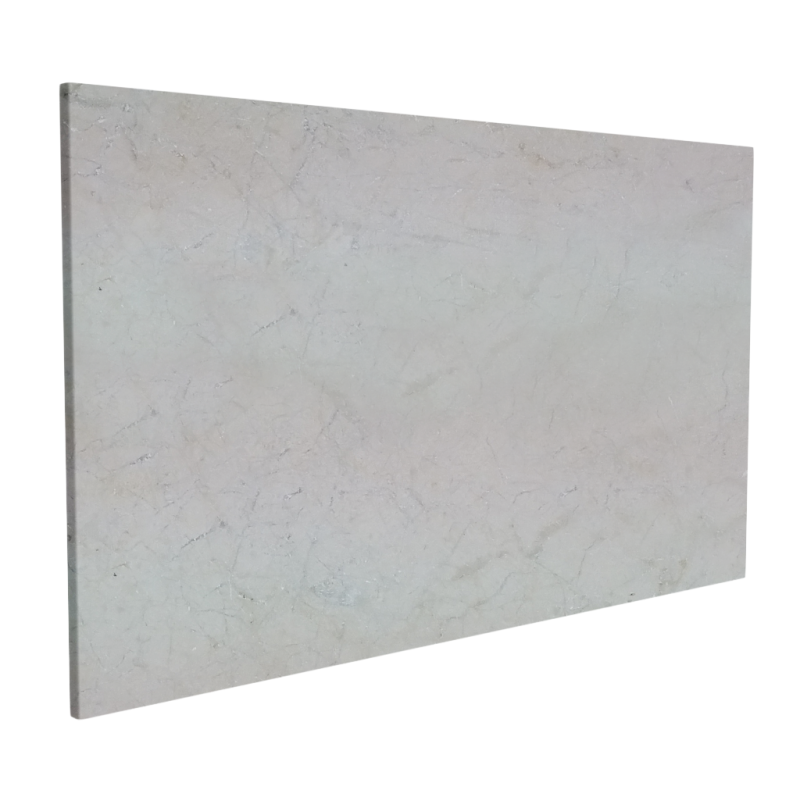Why Marble for Kitchen Countertops
If you’re here, you’ve likely already been captivated by the classic beauty that marble can bring to a kitchen. Known for its timeless elegance and unparalleled uniqueness, no two marble slabs are identical. But how do you go about choosing the perfect slab for your kitchen? That’s what this guide is all about. So, buckle up, as we delve deep into the world of marble countertops!

This article may interest you Marble or Granite for kitchen countertops
The Journey from Quarry to Kitchen
Types of Marble
Marble can be found all around the world, from the sophisticated quarries in Italy to the rugged terrains of Brazil. Each geographical location gives birth to marble with distinct patterns, colors, and qualities. The most famous types are Carrara, Calacatta, and Emperador, to name a few.
How Marble Slabs Are Produced
Marble extraction is an awe-inspiring process. Blocks are carefully cut from the quarry and then sent to factories for further processing. Once there, these blocks are sliced into slabs, polished, and prepared for commercial use. Understanding this journey can give you a new appreciation for this natural stone and the work that goes into making each piece unique.
The Essentials of Quality
Grading of Marble
When it comes to quality, marble is graded from A to D, with Grade A being the least porous and most durable. Lower-grade marbles will likely require more maintenance and may be less resilient to wear and tear.
Importance of Thickness
Thickness is another factor that shouldn’t be overlooked. Most kitchen countertops are at least 3/4 inches thick, but a 1-1/4-inch thickness is ideal for enhanced durability.
Veining Patterns
Marble is renowned for its captivating veining. The veins can range from subtle to bold, and the pattern can either be consistent or varied across the slab. Always take time to personally inspect the veining and consider how it will look in your kitchen.
The Aesthetics of Marble
Color Options
While the classic white marble is a popular choice, there’s a spectrum of colors available. From black, grey, and brown to pink and green, the options are endless.
Finish Types
When choosing marble, you’ll have the option to go for a glossy or honed finish. A glossy finish gives a shiny look, while a honed finish offers a more matte appearance. Both have their pros and cons, so consider what suits your lifestyle and aesthetic preferences.
Price Matters
Cost Estimation
The cost of marble slabs can vary widely based on the type, quality, and where it’s purchased. On average, expect to pay anywhere between $40 to $200 per square foot.
Price vs Quality
Remember, higher-quality marble will generally require less maintenance and last longer, providing a better return on your investment in the long run.
Maintenance Requirements
Daily Care
Marble is porous and can be susceptible to staining and etching. Use coasters, clean spills immediately, and opt for a quality sealer to keep it in tip-top shape.
Long-Term Maintenance
In addition to daily cleaning, marble countertops will need to be resealed every 6 to 12 months. Some homeowners even opt for professional polishing to keep the surface looking its best.

How to Choose the Perfect Marble Slab for Your Kitchen Countertop
Visual Inspection
One of the best ways to pick the perfect marble slab is to see it in person. Pay attention to the color, pattern, and overall look to make sure it aligns with your vision.
Test for Porosity
Marble is naturally porous, which makes it susceptible to stains. Before making a final decision, ask for a sample and conduct a porosity test to gauge how easily it might stain.
Scratching and Staining Tests
Alongside the porosity test, you can also check for the marble’s resistance to scratching and staining by using various household items like keys or lemon juice on a sample piece.
Measuring Your Space
Accurate measurements are crucial. Double-check your measurements and consult with professionals to avoid costly mistakes.
FAQs
How durable is marble?
Marble is a fairly durable material, but it can be susceptible to etching and staining if not properly maintained.
How do I clean marble countertops?
Marble should be cleaned with a pH-neutral cleaner and soft cloth to prevent etching or stains.
What’s the difference between marble and granite?
Marble is generally softer and more porous than granite, making it less resistant to stains and scratches but more elegant in appearance.
Is marble safe for kitchen countertops?
Yes, marble is safe for kitchen use as long as it is sealed and maintained properly.
What is the best finish for a marble countertop?
Both honed and polished finishes have their merits; it depends on your aesthetic and functional preferences.
How much does marble cost?
Prices can range from $40 to $200 per square foot, depending on the quality and type of marble.
Conclusion
Choosing the perfect marble slab for your kitchen countertop can be a joyful yet complex experience. With various factors like grading, thickness, aesthetics, and cost at play, making an informed decision is crucial. Hopefully, this guide has made your journey towards finding the ideal marble slab a tad easier. Happy remodeling!

